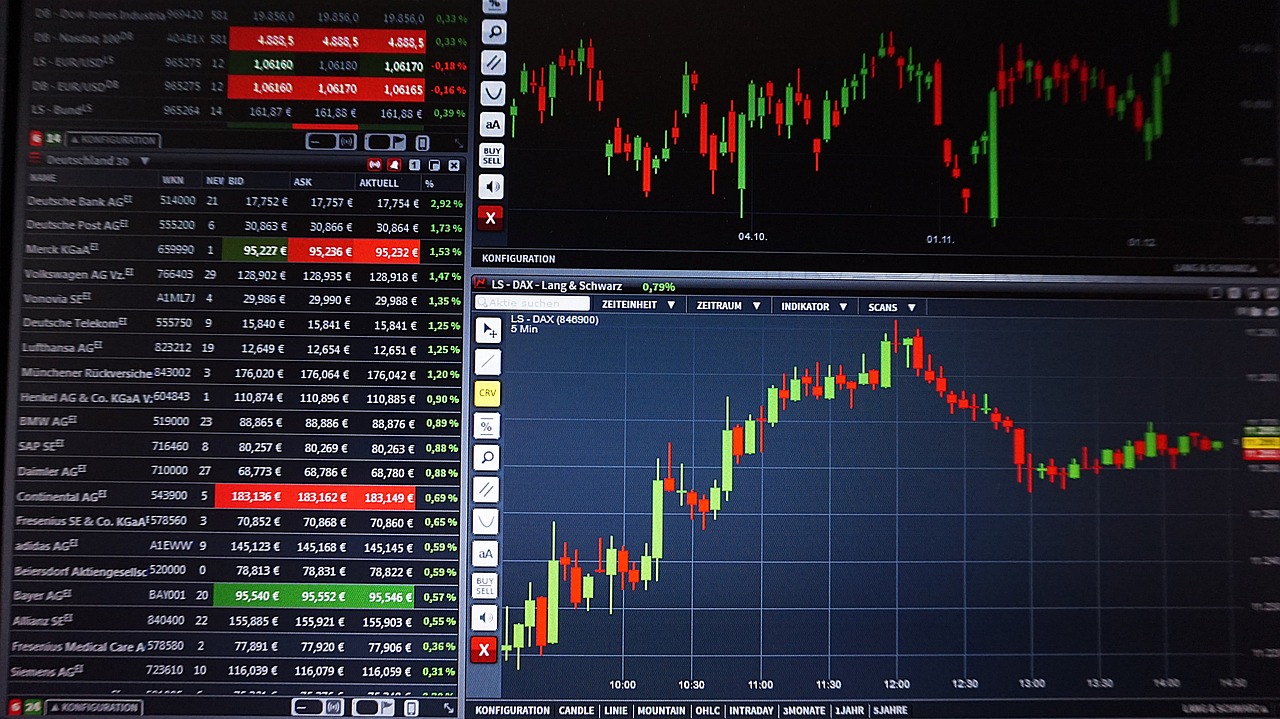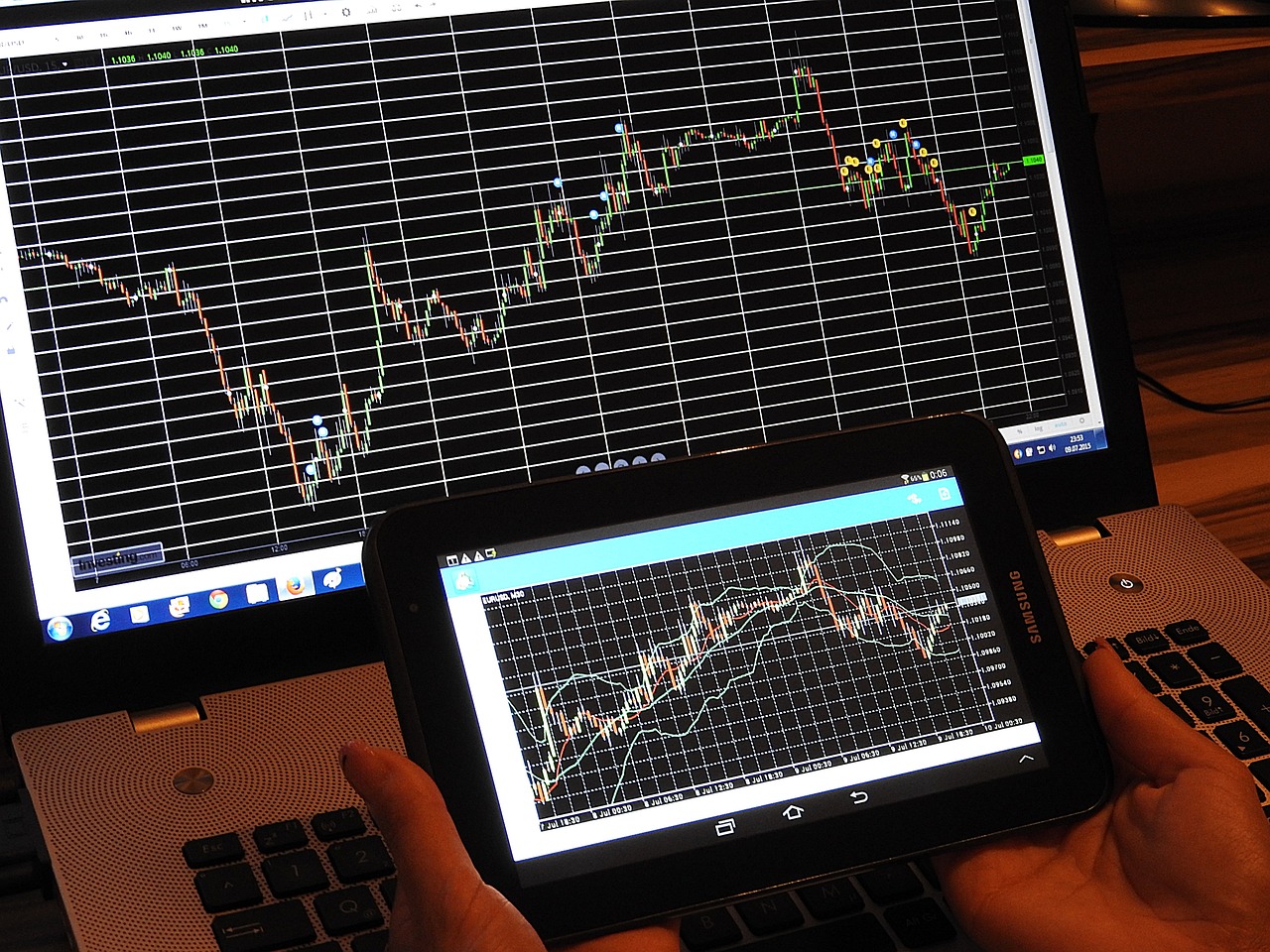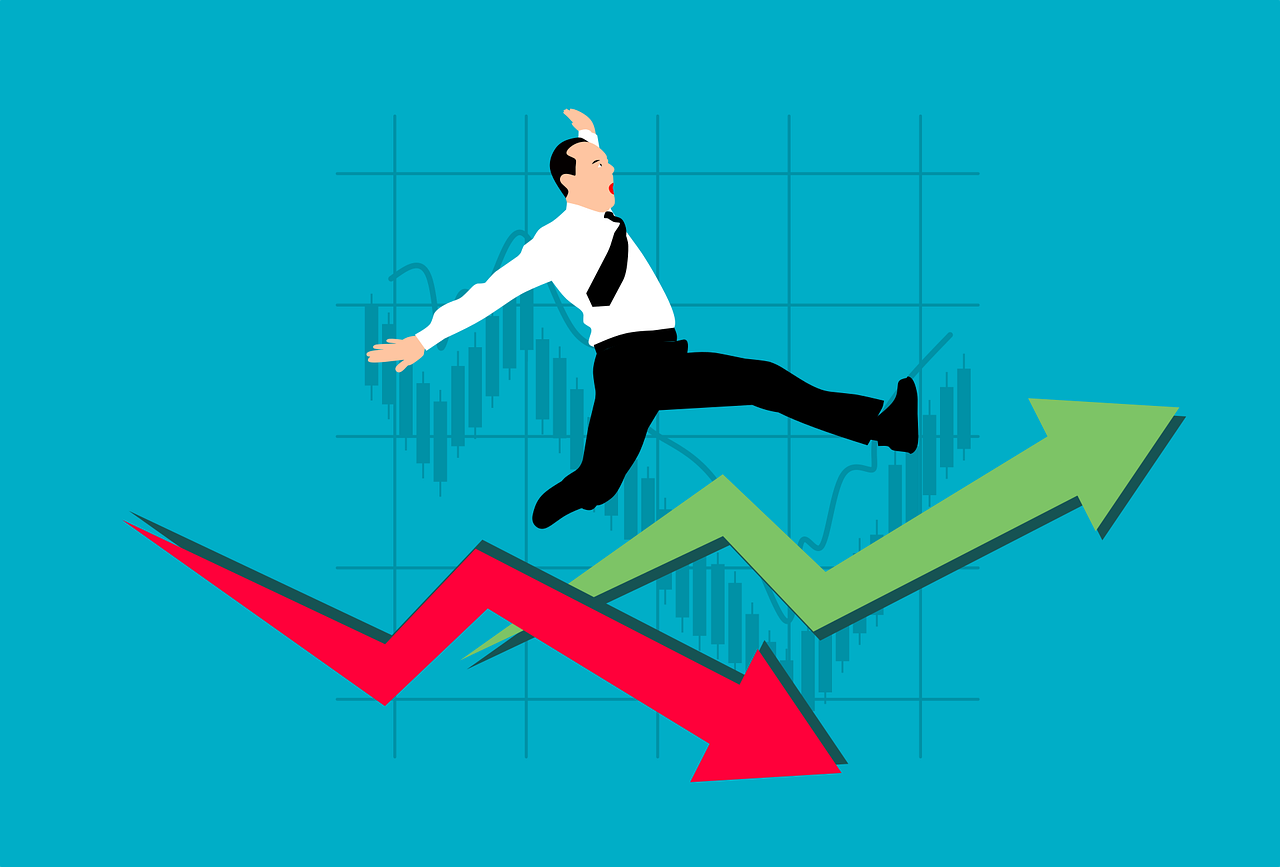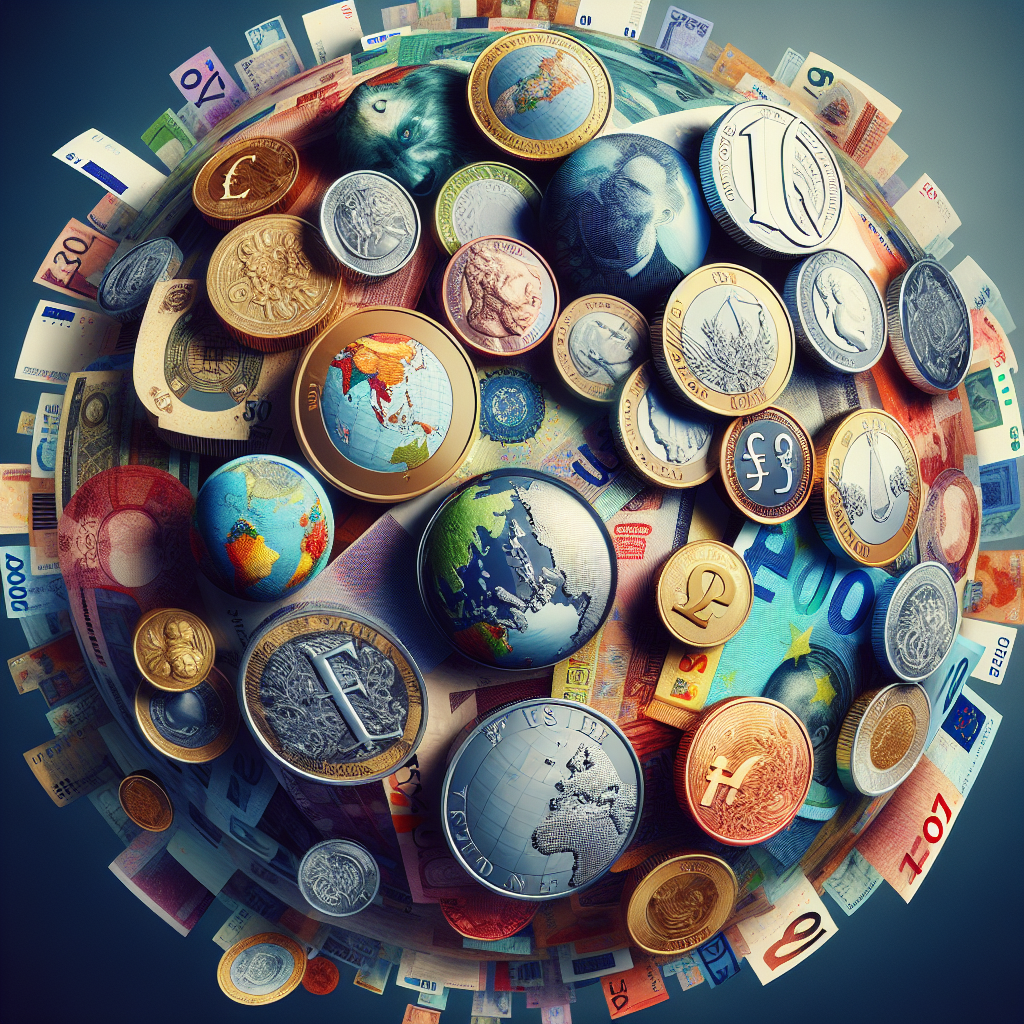Table of Contents
In the world of forex trading, there is a question that lurks in the minds of many aspiring traders: do forex traders make money on average? This burning query stems from the allure and potential profitability of the forex market, which has captivated individuals with its promises of financial freedom. However, the truth behind the success rate of forex traders remains elusive, as various factors come into play in determining their profitability. This article aims to shed light on the reality behind this question and dissect the intricacies of forex trading, analyzing whether average traders truly find themselves on the winning side of the trade.

Factors Affecting Forex Trader Profits
Market Conditions
The first factor that significantly affects forex trader profits is the market conditions. Forex markets can be highly volatile, with currency exchange rates fluctuating rapidly. Traders need to carefully analyze and understand the market conditions before making any trading decisions. Factors such as economic indicators, geopolitical events, and central bank policies can all influence market conditions and impact trader profits.
Trading Strategy
Another crucial factor in determining forex trader profits is the trading strategy employed. Traders can use a variety of strategies, including trend following, range trading, and breakout trading, among others. Each strategy carries its own set of risks and rewards. Successful traders carefully select and develop a trading strategy that suits their preferences and aligns with the current market conditions.
Trading Experience and Skills
The level of trading experience and skills possessed by a forex trader also plays a significant role in their profitability. Novice traders may find it challenging to navigate the complexities of the forex market and may experience more losses than gains. On the other hand, experienced traders who have honed their skills through years of practice and learning can potentially increase their chances of making profitable trades.
Risk Management
Effective risk management is crucial for forex traders to protect their capital and maximize profitability. Traders should set clear risk tolerance levels and implement appropriate risk management strategies, such as setting stop-loss orders and using proper position sizing techniques. Failure to manage risk effectively can result in significant losses and negatively impact trader profits.
Psychological Factors
Psychological factors can have a profound impact on forex trader profits. Emotions such as fear, greed, and impulsivity can cloud judgment and lead to impulsive and irrational trading decisions. Successful traders understand the importance of maintaining emotional discipline, managing stress, and sticking to a well-defined trading plan.
Technology and Tools
The availability of advanced technology and trading tools can also impact forex trader profits. Access to real-time market data, sophisticated trading platforms, and analytical tools can give traders a competitive edge. By leveraging technology and tools effectively, traders can make more informed trading decisions and potentially increase their profitability.
Types of Forex Traders
Individual Retail Traders
Individual retail traders are independent traders who trade with their own capital. They typically operate from home or small offices and use online trading platforms to execute trades. Retail traders often have more flexibility in their trading decisions compared to institutional traders but may face challenges due to limited resources and access to market information.
Institutional Traders
Institutional traders are professionals who trade on behalf of large financial institutions such as banks, hedge funds, and asset management firms. They have access to extensive resources, including deep market analysis, research teams, and cutting-edge trading tools. Institutional traders often engage in large-volume trades and may have more influence on market movements compared to individual retail traders.
Algorithmic Traders
Algorithmic traders, also known as quants or systematic traders, use computer programs and algorithms to execute trades automatically. These traders rely on mathematical models and historical data to identify trading opportunities and execute trades with precision and speed. Algorithmic trading has gained popularity due to its ability to remove human emotions from trading decisions and exploit market inefficiencies.
Copy Traders
Copy trading has emerged as a popular approach where traders can automatically replicate the trades of successful traders. Copy traders can choose to follow and copy the trades of experienced and profitable traders, essentially piggybacking on their expertise. This form of social trading allows novice traders to benefit from the knowledge and skills of more experienced traders and potentially improve their profitability.

Statistics on Forex Trader Performance
Retail Forex Trader Performance
Statistics on retail forex trader performance reveal a challenging landscape. It is estimated that approximately 70-80% of retail traders consistently lose money in the forex market. This high failure rate can be attributed to a lack of experience, inadequate risk management, and emotional decision-making. However, it is important to note that there are successful retail traders who have managed to consistently generate profits by employing effective strategies and disciplined trading approaches.
Institutional Trader Performance
Institutional traders, backed by extensive resources and expertise, generally have a higher success rate compared to retail traders. These professionals often undergo rigorous training and are equipped with comprehensive market analysis tools. However, even institutional traders can face challenges due to market fluctuations and unforeseen events.
Algorithmic Trader Performance
Algorithmic traders have been found to have varying levels of success. The performance of algorithmic trading strategies heavily depends on the quality and accuracy of the underlying algorithms. While algorithmic trading can eliminate emotional biases and execute trades quickly, poor strategy design or incorrect implementation can lead to significant losses.
Copy Trader Performance
The performance of copy traders is contingent upon the selection of successful traders to follow and their ability to consistently generate profits. Copy traders should conduct thorough research and analysis to choose reliable and experienced traders to replicate. It is also vital to continually monitor and review the performance of the selected traders to assess their profitability.
Challenges Faced by Forex Traders
Highly Volatile Markets
One of the significant challenges faced by forex traders is the highly volatile nature of the forex market. Currency exchange rates can fluctuate rapidly, influenced by various economic, political, and social factors. Sudden spikes or drops in prices can result in unexpected losses if traders are not adequately prepared and fail to adjust their trading strategies accordingly.
Lack of Regulation and Scams
The forex market is decentralized and lacks a central regulatory authority. This can expose traders to fraudulent activities and scams. Traders should exercise caution and conduct proper due diligence before trading with any broker or platform. It is essential to choose reputable brokers regulated by recognized financial authorities to ensure a secure and transparent trading environment.
Emotional and Psychological Challenges
Emotional and psychological challenges can significantly impact forex traders’ profitability. The fear of missing out (FOMO), greed, and impulsive decision-making can lead to poor trading choices and increased losses. Traders must develop emotional discipline, manage stress effectively, and stick to a predefined trading plan to mitigate the negative psychological impact on their trading performance.
Unpredictable Economic Factors
Forex traders must navigate unpredictable economic factors that can significantly impact currency exchange rates. Economic indicators, political developments, and central bank decisions can create volatility in the market and require traders to adjust their strategies accordingly. Staying informed about global economic events and their implications is crucial for successful forex trading.

Tips to Improve Forex Trading Performance
Continuous Education and Learning
To improve forex trading performance, it is essential to invest in continuous education and learning. Traders should stay updated with the latest market trends, news, and analysis. By continuously improving their knowledge and skills, traders can identify new opportunities and adapt to changing market conditions effectively.
Developing a Solid Trading Plan
Having a well-defined trading plan is crucial for consistent profitability. A trading plan outlines specific entry and exit criteria, risk management strategies, and profit targets. By sticking to a plan and avoiding impulsive decisions, traders can maintain discipline and increase their chances of achieving long-term success.
Implementing Effective Risk Management Strategies
Effective risk management is a fundamental aspect of successful forex trading. Traders should determine their risk tolerance levels and set appropriate stop-loss orders to limit potential losses. Proper position sizing techniques should also be employed to ensure that no single trade poses a significant risk to the trader’s overall capital.
Maintaining Emotional Discipline
Maintaining emotional discipline is vital in forex trading. Traders should avoid making impulsive trading decisions driven by fear or greed. Emotionally disciplined traders can adhere to their predefined trading plans and make rational decisions based on careful analysis and risk management strategies.
Using Technical and Fundamental Analysis
Both technical and fundamental analysis are essential tools for forex traders. Technical analysis involves analyzing historical price data and identifying patterns and trends, while fundamental analysis focuses on economic indicators and news events. By combining both approaches, traders can make informed trading decisions based on a holistic understanding of market conditions.
Adopting a Long-Term Perspective
Forex trading can be a long-term endeavor, and it is important for traders to adopt a long-term perspective. Avoid focusing on short-term fluctuations and aim for consistent profitability over an extended period. Patience and perseverance are key traits of successful long-term forex traders.
Strategies to Boost Forex Trader Earnings
Scalping
Scalping is a short-term trading strategy that aims to profit from small price movements. Traders using this strategy typically open and close multiple trades throughout the day, taking advantage of small market fluctuations. Scalping requires quick decision-making skills and a high level of focus.
Day Trading
Day trading involves opening and closing trades within a single trading day. Day traders aim to capture short-term price movements and take advantage of intraday volatility. This strategy requires careful analysis and the ability to make quick trading decisions.
Swing Trading
Swing trading is a medium-term trading strategy that seeks to capture larger price movements over a few days to several weeks. Traders using this strategy often rely on technical analysis to identify trends and position themselves in anticipation of significant price swings.
Position Trading
Position trading is a long-term trading strategy that involves holding trades for weeks, months, or even years. Traders using this strategy aim to capitalize on long-term trends and typically base their trading decisions on fundamental analysis and macroeconomic factors.
Carry Trading
Carry trading involves taking advantage of interest rate differentials between currency pairs. Traders earn interest by holding positions in currencies with higher interest rates while simultaneously selling currencies with lower interest rates. This strategy is based on the belief that higher-yielding currencies will appreciate against lower-yielding ones and can be a longer-term strategy.
Algorithmic Trading
Algorithmic trading involves using computer programs and algorithms to execute trades automatically. Traders who employ algorithmic trading strategies leverage technology to analyze vast amounts of data and execute trades with precision and speed.
Copy Trading
Copy trading allows traders to replicate the trades of successful traders automatically. By following and copying the trades of experienced traders, copy traders can benefit from their expertise and potentially improve their profitability.

Top Forex Traders and Their Success Stories
George Soros
George Soros is one of the most famous and successful forex traders. Known for his speculative trades in currency markets, Soros famously made a billion-dollar profit by shorting the British pound in 1992. His successful trade against the pound earned him the title of “The Man Who Broke the Bank of England.”
Paul Tudor Jones
Paul Tudor Jones is a highly successful hedge fund manager and forex trader. He is known for his macroeconomic approach to trading and his ability to predict major market movements. Jones accurately predicted the stock market crash of 1987 and earned significant profits from his short positions.
John Paulson
John Paulson is a billionaire hedge fund manager who made fortunes from his bets against the U.S. housing market during the 2008 financial crisis. His successful trades earned him billions of dollars, solidifying his position as one of the top forex traders in the world.
Bruce Kovner
Bruce Kovner is a renowned forex trader and investor. He founded Caxton Associates, a hedge fund that generated substantial profits through currency trading. Kovner’s successful trades and track record have earned him a place among the top forex traders in the industry.
Stanley Druckenmiller
Stanley Druckenmiller is a legendary investor and former hedge fund manager. He is known for his collaboration with George Soros on the famous British pound trade. Druckenmiller’s strategic insights and ability to capitalize on market opportunities have made him one of the most successful forex traders in history.
Common Mistakes Made by Forex Traders
Lack of Risk Management
Many forex traders fail to implement effective risk management strategies, which can result in significant losses. Failure to set appropriate stop-loss orders and proper position sizing can lead to undue risk exposure and the potential for substantial drawdowns.
Overtrading
Overtrading is a common mistake made by forex traders, particularly those who are driven by emotions or a desire for quick profits. Overtrading can lead to increased transaction costs, reduced profitability, and greater exposure to market fluctuations.
Emotional Trading
Forex traders who allow their emotions to influence their trading decisions often make poor choices. Emotional trading driven by fear or greed can lead to impulsive trades or failure to exit losing positions, resulting in unnecessary losses.
Ignoring Stop Loss Orders
Ignoring stop loss orders or failing to set them in the first place is a significant mistake made by forex traders. Stop loss orders are crucial for managing risk and protecting capital. Without them, traders risk substantial losses in the event of adverse price movements.
Not Adapting to Changing Market Conditions
Forex traders who are unable or unwilling to adapt to changing market conditions may struggle to remain profitable. Market dynamics can shift rapidly, and traders must adjust their strategies accordingly to capitalize on new opportunities or mitigate potential risks.

Conclusion
Forex trading offers opportunities for profit, but it also presents numerous challenges. Factors such as market conditions, trading strategy, experience, risk management, and psychological factors all play a crucial role in determining forex trader profits. Traders must continuously educate themselves, develop solid trading plans, implement effective risk management strategies, and maintain emotional discipline to improve their trading performance. By understanding the different types of forex traders, analyzing statistics on trader performance, and avoiding common mistakes, traders can enhance their chances of profitability.



